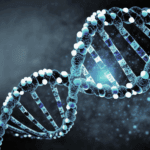Spending time outdoors offers numerous benefits, from lifting your mood and improving sleep quality to bolstering your immune system-all without any cost. Yet, the sun’s ultraviolet (UV) rays pose a significant risk, contributing to skin damage that can ultimately lead to skin cancer, the most commonly diagnosed cancer in the United States. Dermatologist Dr. Geeta Yadav underscores that “the primary risk factor for skin cancer is unprotected exposure to UV radiation, closely followed by genetic factors.”
Understanding Skin Cancer and UV Exposure
Skin cancer develops when abnormal cells arise in the epidermis, the skin’s outermost layer. The main cause of these abnormal cells is DNA damage induced by UV radiation from sunlight or tanning devices. Additional risk factors include aging, family history, and physical traits such as fair skin, light-colored eyes, and hair that burns or freckles easily. While many of these factors are beyond our control, there are effective ways to reduce risk.
Prevention: Beyond Sunscreen and Protective Clothing
The Centers for Disease Control and Prevention (CDC) emphasize that many skin cancer cases are preventable through sun-safe habits. These include applying broad-spectrum sunscreen regularly, wearing hats and protective clothing, seeking shade, and avoiding tanning beds, which emit harmful UV rays. Complementing these external defenses, emerging research suggests that internal protection through diet-specifically antioxidants-can offer additional benefits.
The Role of Antioxidants in Skin Cancer Defense
Antioxidants are compounds found in various foods that help neutralize free radicals-unstable molecules generated by UV exposure that can damage cells and DNA. This oxidative stress is a key contributor to cellular dysfunction, premature skin aging, and cancer development. Dr. Yadav explains, “Antioxidants counteract free radicals, preventing them from causing long-term damage.”
How Antioxidants Work Against UV Damage
- Combating Oxidative Stress: UV rays trigger free radical formation, which damages skin cells. Antioxidants neutralize these molecules, helping to maintain cellular integrity and reduce the risk of mutations that can lead to cancer.
- Inhibiting Cancer Cell Progression: The body naturally eliminates many damaged cells before they become cancerous. However, some escape this process. Certain antioxidants, such as anthocyanins found in berries, may accelerate the removal of these precancerous cells.
- Enhancing Internal Sun Protection: Antioxidants can reduce inflammation caused by sunburn and help absorb some UV radiation internally. For example, carotenoids-found in colorful fruits and vegetables like tomatoes-have been shown to provide a sun protection factor (SPF) equivalent of about 4, reducing sunburn severity.
Scientific Evidence Supporting Antioxidants
Laboratory and animal studies have demonstrated promising results regarding antioxidants’ protective effects against skin cancer. For instance:
- Vitamin C and E: In studies with hairless mice exposed to UV light, dietary supplementation with vitamin C reduced the incidence of malignant and precancerous lesions. Vitamin E supplementation also decreased tumor numbers by about 25%.
- Beta-Carotene: This antioxidant reduced tumor numbers by 32% in mice exposed to carcinogens, although human studies have shown mixed results regarding its effectiveness.
- Selenium: Supplementation prior to and during UV exposure in animal models showed dose-dependent protection against skin cancer development.
- Nutrient Combinations: Diets enriched with a mixture of antioxidants, including vitamins C and E, selenium, and green tea extract, significantly lowered skin tumor incidence and multiplicity in animal studies.
Despite these encouraging findings in preclinical models, human trials have produced mixed outcomes. Some long-term studies found no significant reduction in skin cancer incidence with antioxidant supplementation, and in certain cases, supplementation was linked to increased skin cancer risk in women. This suggests that the effects of antioxidant supplements may vary based on factors such as gender, dosage, and the presence of other nutrients.
Read more: There Are 3 Zodiac Signs Most Emotionally Impacted by Negativity, According to Astrology
Why Whole Foods Trump Supplements
Research indicates that antioxidants consumed through whole foods may be more beneficial than isolated supplements. Whole foods provide a complex mix of antioxidants and other phytochemicals that work synergistically to protect the skin. This complexity is difficult to replicate in supplement form, which may explain why clinical trials of antioxidant pills have yielded inconsistent results.
Practical Tips to Boost Antioxidant Intake for Skin Health
To harness the protective power of antioxidants naturally, consider these strategies:
- Fill Your Plate With Color: Brightly colored fruits and vegetables-such as berries, tomatoes, carrots, spinach, and bell peppers-are rich in antioxidants like carotenoids, anthocyanins, and vitamins C and E.
- Sip Green Tea: Rich in catechins, green tea has anti-inflammatory properties that help soothe UV-induced skin irritation.
- Enjoy Dark Chocolate: High-quality dark chocolate contains polyphenols that may improve skin hydration and circulation, contributing to overall skin health.
- Incorporate Citrus and Flavonoid-Rich Foods: Citrus fruits and foods high in flavonoids have been shown to reduce inflammation and may inhibit pathways involved in skin cancer development.
Additional Insights on Antioxidants and Skin Cancer Prevention
Recent studies highlight that antioxidants like retinoids (vitamin A derivatives) and phenolic compounds can inhibit skin tumor formation in animal models by reducing inflammation and oxidative damage. For example, topical vitamin E has demonstrated a dose-dependent reduction in UV-induced skin cancer in mice, while citrus peel extracts have shown potential in preventing tumor formation by blocking inflammatory enzymes.
However, it is crucial to recognize that antioxidants can sometimes act as prooxidants under certain conditions, potentially exacerbating oxidative stress. This dual role underscores the importance of balanced intake and cautions against high-dose supplementation without medical supervision.
Read more: Lucid Dreaming Found To Spark Complex Brain Connectivity Rarely Seen In Normal Sleep
The Bottom Line: A Holistic Approach to Skin Cancer Prevention
While sun protection through sunscreen and clothing remains paramount, integrating antioxidant-rich foods into your diet offers an additional layer of defense. The most effective strategy involves:
- Consistent use of sun-safe measures to minimize UV exposure.
- Regular skin examinations to detect early changes.
- Consuming a varied diet rich in colorful fruits, vegetables, and other antioxidant sources.
- Avoiding reliance on antioxidant supplements as a substitute for sun protection.
This comprehensive approach leverages both external and internal defenses, helping to reduce oxidative damage, inflammation, and the risk of skin cancer development.
Final Thoughts
The journey to healthier skin and reduced cancer risk is multifaceted. By embracing sun-safe habits and nourishing your body with antioxidant-rich foods, you can enjoy the outdoors while supporting your skin’s resilience against UV damage. Before your next day in the sun, consider stocking up on nature’s protective bounty-berries, tomatoes, leafy greens, and more-to give your skin the best possible chance to stay healthy and vibrant.










